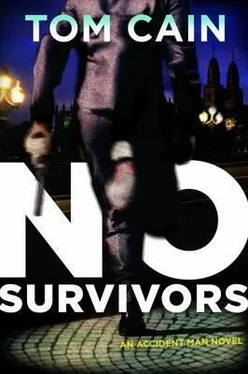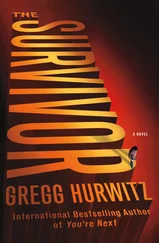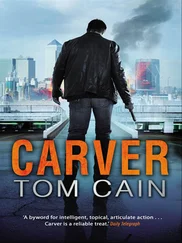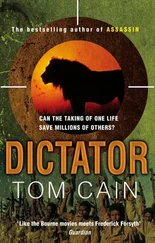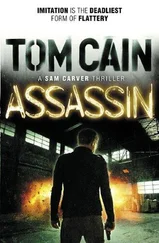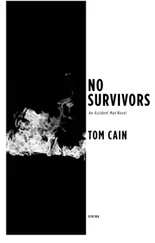He turned to one of the other men, who was balding, his overdeveloped muscles now melting into fat, a brown leather jacket open to reveal a spreading paunch. His name was Clinton Tulane and he had been a military instructor back in the days when McCabe was providing assistance to West African guerrillas. Tulane had helped him out then, just as he’d helped out a whole lot of other people, from Sarajevo to El Salvador. That was how he knew Dusan Darko, though that was not the name under which the man in the black overcoat with the lank, greasy hair had entered the United States. When you were a Serbian warlord, wanted across the Western world for crimes against humanity, it paid to travel incognito.
“You can leave us now, Clint,” said McCabe. “It’s been real good of you to make this introduction. But me ’n’ Mr. Darko here gotta talk business, and it’s kinda private.”
“Yes, sir,” said Tulane, any resentment at his exclusion more than covered by the wad of hundred-dollar bills now nestled in his jacket pocket.
McCabe waited long enough to let Tulane get out of earshot, then fixed his attention on the other man.
“So, Mr. Darko, Clint tells me you’re a man of some influence in your country-is that so?”
Darko shrugged as if to suggest that he was, indeed, influential, but too modest to say so out loud.
“So supposing I wanted to enter your country by air, find a place to land and refuel, pick up a package, and leave without anyone hasslin’ me-you could make that happen?”
“But of course… for a price. You understand, people would need to be paid. But it is possible, certainly.”
“Uh-huh, I get it. And you got men under your command, fightin’ men?”
Darko stood a little straighter.
“My men have fought alongside me for seven years. Against Croats. Against Bosnians. Now against Albanian scum. These men are lions-like the partisans who fought against the Nazis, they cannot be defeated.”
McCabe did his best to keep a straight face. He didn’t need any lessons on fighting from some greasy wop who was second cousin to a Gypsy.
“Well, that’s just fine, Mr. Darko. Let me tell you what I have in mind…”
Carver didn’t know what any of the wildflowers covering the hillside were, but he was glad of their rich, herbal scent. He’d been watching the house for forty-eight hours. During that time he’d drunk water, eaten chocolate, nuts, and dried fruit, and crapped into a sandwich bag before burying it in the earth behind his hideout. He’d also refined his plans for getting the document out of the house.
The property was arranged so that all the social areas were on the southern, downhill side, to maximize the views across the hazy, gray-green hills of Provence to the glittering waters of the Riviera. Everything practical was hidden away out of sight. So the driveway up to the house was over by the right-hand perimeter of the grounds, from Carver’s perspective, looking down from above. There was a small drop-off area by the front door to the house, but the actual parking was to the rear, so that cars would be kept out of sight. There was no garage, but a massive seven-seater Mitsubishi Shogun was sitting under a metal-framed, plastic-roofed awning.
Up against the back wall of the house, a lean-to was filled with logs for the fireplace, which was, according to the architect’s plans, the dominant feature of the main living room. Farther along, on the far side of a rear door that led into the kitchen, two red one-hundred-pound canisters of propane, as high as a man’s shoulder, supplied gas for the stove.
There was still work to do on the area between the house and the rear perimeter. The low brick wall enclosing the parking area was unfinished and much of the ground was still covered with builders’ debris: rubble, discarded bits of woodwork, empty cans, even a small cement mixer. Someone, however, had cleared a space for the high chain-link fences that kept the two dogs caged until they were let loose for the night.
The place had six human inhabitants: four male and two female. The weather had stayed warm, and around about midday the men had staggered outside for a busy day of drinking, smoking, and leering at the bimbos lying by the pool, trying to turn their fake tans into the real thing. It hadn’t taken Carver long to work out which one was Baladze. The cock-of-the-walk way he carried himself, the fawning obedience of the men, and the shrieks of female laughter made it obvious who was the alpha male.
Carver had passed the time working out names for the people who would soon come under his attack. He toyed with soap-opera characters, historical figures, even Jesus and his apostles. In the end he went with Beatles. Baladze he code-named John, the original leader of the band. The man who looked like his second-in-command, a pot-bellied greaser with dirty-blond hair, was therefore Paul. A younger, skinny underling with long dark hair was a natural for George. That left Ringo for the fourth gang member. He had the grossly overdeveloped muscles, the furious expression, and the Pizza Hut complexion of a man who sprinkles steroids on his breakfast cereal and spends too much time alone with his dumbbells. The pelt of wiry black hair across his shoulders wasn’t too pleasant, either.
The women were easy. One was a brunette, the other a blonde, Yoko and Linda, all the way.
During daylight hours, either George or Ringo was on duty as a guard down by the gate to the property. Whoever had the first morning shift had to get up early and put the dogs back in their cage before he went down to his post. The only visitor seemed to be the local baker, whose van turned up midmorning. Judging by the quantities of food and drink that the driver carried in through the back door to the kitchen, along with his loaves of breads, pizzas, cakes, and pies, he’d got some kind of deal to keep the place fully provisioned.
There was a barbecue on the terrace and Paul had been given the job of grilling steaks and kebabs every evening. Aside from that, the domestic chores were left for the women, who were multitasking as the men’s housemaids, cooks, eye candy, and sex toys. Carver could imagine describing the scene to Alix. He didn’t know exactly how she’d respond, but whatever she said, it would be knowing, cynical, and spiked with bone-dry black humor. He wondered how often she’d been treated like one of those women, but didn’t dwell on that, preferring to concentrate on the future. Not long now, and he’d see her again. Just kiss Vermulen good-bye and they could both give the life up for good.
On the afternoon of the second day, Carver decided he’d seen enough. He’d do the job tomorrow. Tonight he’d find a hotel room and get a decent night’s sleep, a hot shower, and a square meal. But before that he had to pick up Vermulen’s package from the poste restante in Vence, then go shopping. He’d written another list of what he needed: sugar, linseed oil, food coloring, wax earplugs, and a bunch of other stuff, from paint brushes to meat pâté. It would mean visiting a few different shops.
And there was one final item: fish-tank oxygenating tablets. He made a mental note to himself: Don’t forget the pet shop.
“Please, Mr. Novak, have as much as you want. I am a woman, I must watch my figure. But I like to see a man enjoying his food.”
Olga Zhukovskaya looked encouragingly at the legendary hors d’oeuvres trolley of Vienna ’s Drei Husaren restaurant. The trolley held more than thirty seasonal dishes, from calves’ brains to caviar.
Sadly for the waiter in his striped waistcoat, standing attentively beside the trolley, Pavel Novak did not have much of an appetite. Nor was he in any mood to appreciate the homely luxury of the Library, the smaller of the sixty-five-year-old restaurant’s two dining rooms. Under normal circumstances, he would have felt soothed and contented among its shelves filled with ancient hardbacks, its baskets of spring daffodils, the stone statues in niches on the wall, and the restful tones of the wooden paneling and dark-green dining chairs. But not when his worst nightmares were coming to life before him.
Читать дальше
